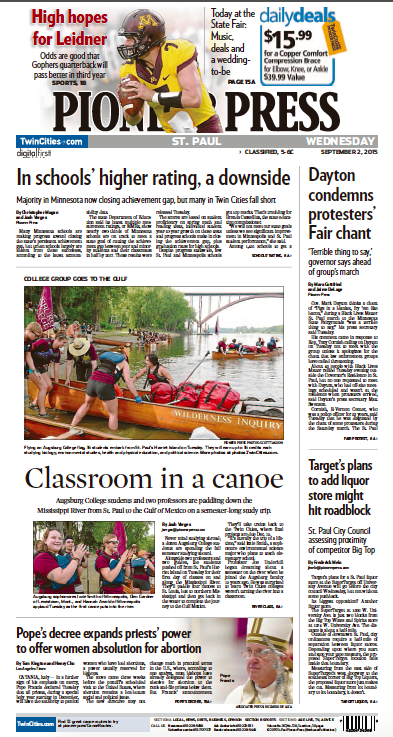 Melissa Hensley, assistant professor of social work at Augsburg College, was quoted in a Star Tribune article about the substantial benefits that Habitat for Humanity homes provide to families who move into them. The article reports on the exceptionally positive findings in a newly released study by Wilder Research of more than 400 families. The improvements in the families’ lives include higher income, less reliance on government social programs, an increased sense of security, and better childhood performance in school.
Melissa Hensley, assistant professor of social work at Augsburg College, was quoted in a Star Tribune article about the substantial benefits that Habitat for Humanity homes provide to families who move into them. The article reports on the exceptionally positive findings in a newly released study by Wilder Research of more than 400 families. The improvements in the families’ lives include higher income, less reliance on government social programs, an increased sense of security, and better childhood performance in school.
In the article, Hensley states that the Habitat model, in which participants help construct their new homes, provides a sense of pride and cooperation that has ripple effects throughout the families’ lives. “Most individuals want to be engaged in a constructive activity,” she said. “This is something people feel they’re a part of and can be proud of.” She goes on to note that by “Enabling them to move into a place where they have stability and safety, they can blossom.”
Read: Habitat for Humanity dramatically improves families’ lives, study finds on the Star Tribune site.





 An article published by the Association of American Colleges & Universities commented on the successes Augsburg College’s Center for Global Education and Experience has had in serving students of diverse backgrounds as they travel to locations around the globe. The article, titled “Global Learning: Key to Making Excellence Inclusive,” described why global experiences are recognized as an essential dimension of a liberal education and how a variety of institutions support increased student participation.
An article published by the Association of American Colleges & Universities commented on the successes Augsburg College’s Center for Global Education and Experience has had in serving students of diverse backgrounds as they travel to locations around the globe. The article, titled “Global Learning: Key to Making Excellence Inclusive,” described why global experiences are recognized as an essential dimension of a liberal education and how a variety of institutions support increased student participation.